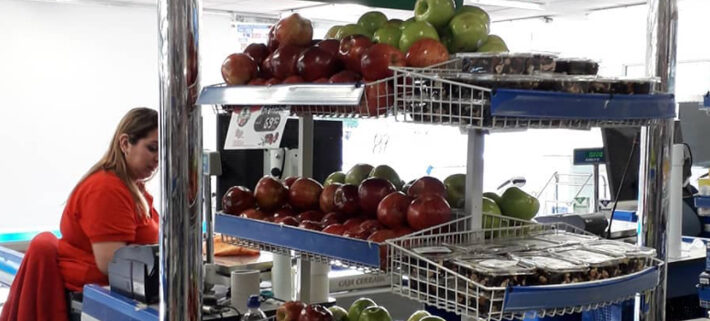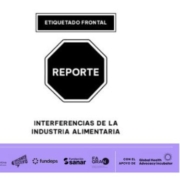The Deliberative Council of Córdoba would prohibit the display of ultra-processed products in checkout lines
The Deliberative Council of Córdoba would approve this Thursday a project that prohibits the display of ultra-processed products online from supermarket, hypermarkets and drug stores.
“Below, we offer a google translate version of the original article in Spanish. This translation may not be accurate but serves as a general presentation of the article. For more accurate information, please switch to the Spanish version of the website. In addition, feel free to directly contact in English the person mentioned at the bottom of this article with regards to this topic”
The initiative, presented by Juan Pablo Quinteros – neighborhood meeting – and Nicolás Piloni – officialism – establishes the incorporation of a sanction to who “exhibits merchandise that are classified by the competent municipal authority as” ultra-processed products “, in supermarkets, hypermarkets and pharmacies with long hours of operation and self-service format, within a radius of 3 (three) meters from the cash register or any other collection area located for this purpose.
Some years ago, excess malnutrition was described as a problem in developed countries. Today this scenario has radically changed and the epidemic has spread at alarming speed in low- and middle-income countries.
The underlying causes of overnutrition, diseases related to excessive food intake, and nutritional imbalance are complex and multidimensional. Food is the product of a set of social, economic and cultural factors that are influenced by the availability, cost and variety of food, along with custom, beliefs and information accessed on eating habits, among others. In this framework, advertising plays a central role, influencing the preferences and eating habits of the population. There is clear evidence about the influence of unhealthy food advertising on the types of foods that children prefer, order and consume. In general, these are ultra-processed products with a high content of sugar, fat or salt.
When we refer to advertising, not only traditional forms, mass media and social networks are included; but also, and very especially in the case of food, the advertising that appears on the packaging, package or container of the product, since it is also conceived with the intention of awakening in the future acquirer the desire to access the good. It is there where the display of the product takes on special relevance.
The alarming figures on excess malnutrition highlight the need for states to adopt measures to avoid excessive and unbalanced food consumption. The design and implementation of public policies that favor the creation of healthy environments is essential. The Argentine State, according to its constitutional precepts and international human rights treaties, is in charge of three types of obligations, these are: to respect, protect and guarantee the right to health and the right to adequate food. In this specific issue, the obligation to protect is the most relevant insofar as it requires active action by the State to regulate the conduct of third parties that, through their activity, may affect the fundamental rights of the population.
In this sense, the World Health Organization (WHO) and other international organizations have published in recent years, numerous documents that, based on scientific evidence free of conflict of interest, establish a set of measures to regulate the environments and products, in order to promote healthy habits and thus stop the growth of excess malnutrition. Among the measures are: the frontal labeling of warnings, fiscal measures, the promotion of a healthy school environment and the restriction of advertising, including the display of products as part of it.
That is why we urge this Deliberative Council to take a step forward in restricting the display of ultra-processed products in the vicinity of checkout counters in supermarkets, hypermarkets and pharmacies. Through a measure such as this, the State will be protecting the rights of consumers, and especially, ensuring the health of boys and girls.
Image source: @nutricionistasderionegro
Contact
- Maga Merlo Vijarra, magamerlov@fundeps.org
- Agustina Mozzoni, agustinamozzoni@fundeps.org











